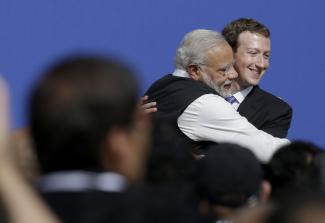Web services
Free of charge, but limited in scope

“Some” access is obviously limited access. The implicit messages of this kind of programme are that poor people do not need all internet options and that affordability requires them to forgo some rights and ideals. The irony of the matter is that technological solutions of this sort do not truly empower the poor because their options remain restricted.
In Kenya, the policy debate now revolves around what “free” internet should mean. The Facebook approach is free of monetised costs – but it does include an important trade-off. It limits users’ freedom of choice. What services are available via Free Basics is predetermined by Facebook.
An important downside is that the platform restricts users’ freedom to create because the services on offer are mostly for content consumption, not production. Accordingly, people’s freedom to compete online is limited too.
In the eyes of internet activists, this kind of “free internet” is insufficient and no substitute for real empowerment. The political implication is that Facebook’s Free Basics do not let government authorities off the hook as far as universality of internet access is concerned. In India, the regulator has banned differential pricing of internet services. Accordingly, Free Basics has been banned too (also see main article).
Link
Facebook Free Basics:
https://developers.facebook.com/docs/internet-org








